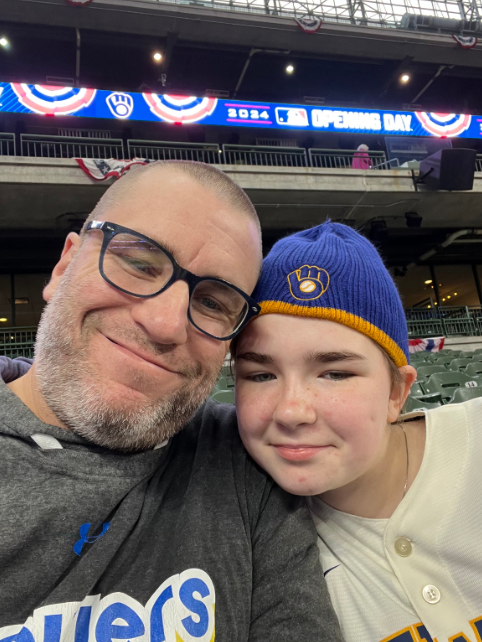Facing Fears
June 1, 2018
Everyone is afraid of something. Fear is a utterly unavoidable emotion that affects our lives everyday, and can sometimes change people’s aspects on life. Our lives can be profoundly shaped by these conscious and unconscious fears, as well as our efforts to avoid them.
People that possess extreme or irrational fears refer to them as phobias. Popular phobias are ones such as fear of heights, fear of death, fear of certain animals, etc. However, some people have fears that are less ordinary and are seen as unique.
“I’ve had a weird fear of chewed gum ever since I was little,” said Senior Megan Veit. “There’s just something about gum when I see it on the ground or under desks that really makes my skin crawl. If I ever touched something like that I’d probably scream and freak out.”
As nasty as chewed gum is, most people wouldn’t necessarily be afraid of it as much as Megan is. Her fear is very irrational, but there’s a major reason as to why she’s afraid of it.
“Once when I was five, my brother chewed some gum and then placed it on my forehead. I cried alot and now even today I’m still afraid of it. Sometimes I even have nightmares about it.”
In this case, her fear is explained and rationalized because of a traumatic experience she had when she was young. This one bad experience with chewed gum has now given her a phobia, which she may never get over.
Although according to HelpGuide.org, a website on mental and emotional health, it says the fear of humiliation and judgment is the cause of social phobias such as the fear of public speaking. Phobias also instill extreme anxiety that will make victims to avoid their phobias at all costs. Luckily, getting rid of phobias is usually possible with the right treatments, and these treatments are very similar no matter what the fear.
It’s not likely your phobia will just go away. Phobias that develop during adolescence usually require some kind of focused treatment. Children however, often develop a handful of fears due to their immaturity. These fears are usually overcome with age, like the fear of the dark. If you exhibit strong fears for over half a year, it may be time to address the possibility of it being a phobia. The best way to get rid of fears is to confront them. You want to expose yourself to your phobia as much as possible, and retrain your brain to recondition your fear response.
Some people see psychiatrists and try exposure therapy, which has proven to be the most effective anxiety treatment. According to the American Psychological Association, this is a psychological treatment that was developed to help people confront their fears. This therapy exposes you to your fear and eventually trains your brain to not feel fear when you see the thing you fear most.
On an episode of BBC Explorations, the topic was primal fear, so they interviewed three people about their irrational fears. One person named Jackie had an impactful fear of feathers, which made it impossible for her to be around birds or use pillows. Considering the intense anxiety she was feeling with the rare phobia everyday, she agreed to go through exposure therapy.
The therapist showed her a feather, which predictably made her nervous and frightened at first, but after keeping her in the room with the feather, she began to become more and more comfortable with the feather until she was finally able to hold it without freaking out.
“I never ever imagined in my wildest dreams that I’d ever in my life sit here holding a feather. Ever, ever,” said Jackie after being exposed to the feather for more than an hour. This is a good example of what the exposure treatment can do for people with phobias.
If we can withstand the pain and anxiety of our phobias, and become familiar with what scares us the most, we can overcome anything. All it takes is one touch of a feather, one baby step at a time, and soon enough, we’ll be able to face our fears.














